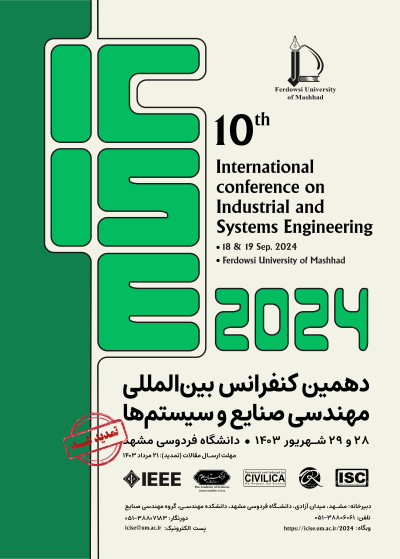0% Complete

نویسندگان :
کلمات کلیدی :
چکیده :
لیست مقالات بایگانی شده
اوستا باور - محمدمهدی پایدار - مصطفی حاجی آقائی کشتلی
شیما رضائیان - محمدمهدی پایدار - سعید امامی
علیرضا حق شناس نصرآبادی - رضا قاسمی یقین
محمدعلی خرم آبادی - هادی بالوئی جام خانه
مهدی مزروعی سبدانی - سیدمیثم موسوی - محمد سعید منصوری
نسیم غنبرطهرانی - سحر اخگر - سیده زهرا کلانتری بنادکی
نرگس محمدزاده - سید حسام الدین ذگردی
Mahdieh Dehghani meybodi - Mohammad saber Fallahnezhad
زهرا ایرانپور مبارکه - مهدی نوذریان - محمد غفوریان نصیری - علیرضا فریدونیان
هادی قلینژاد - رمضان خسروی




